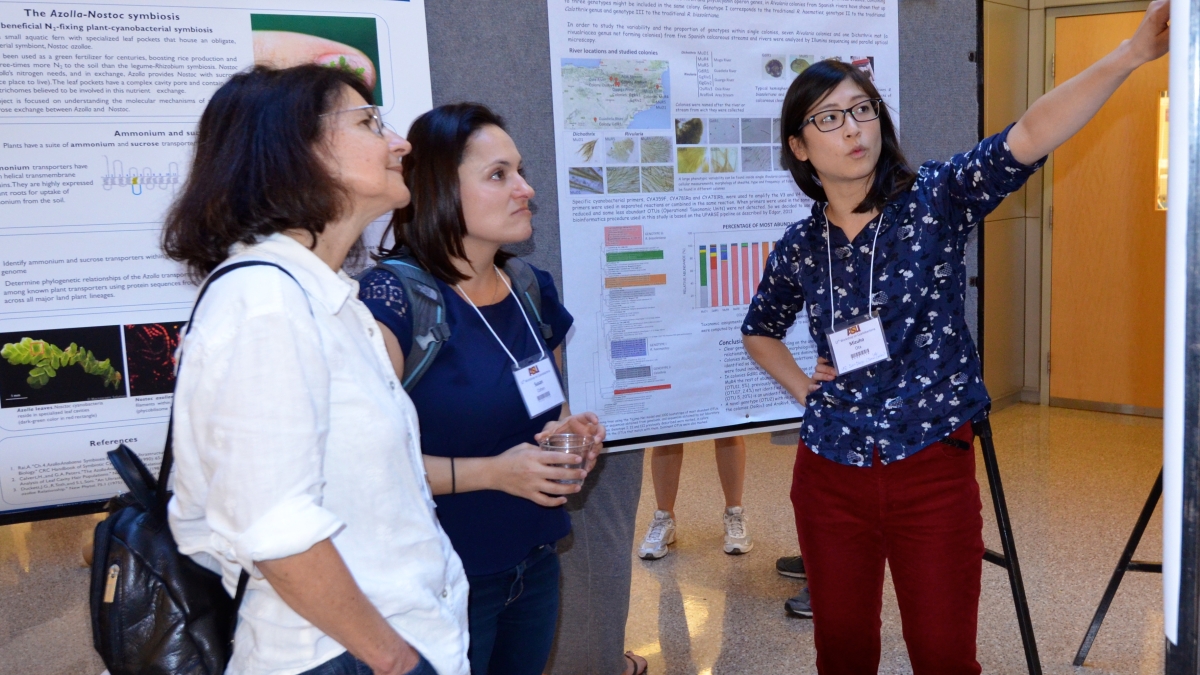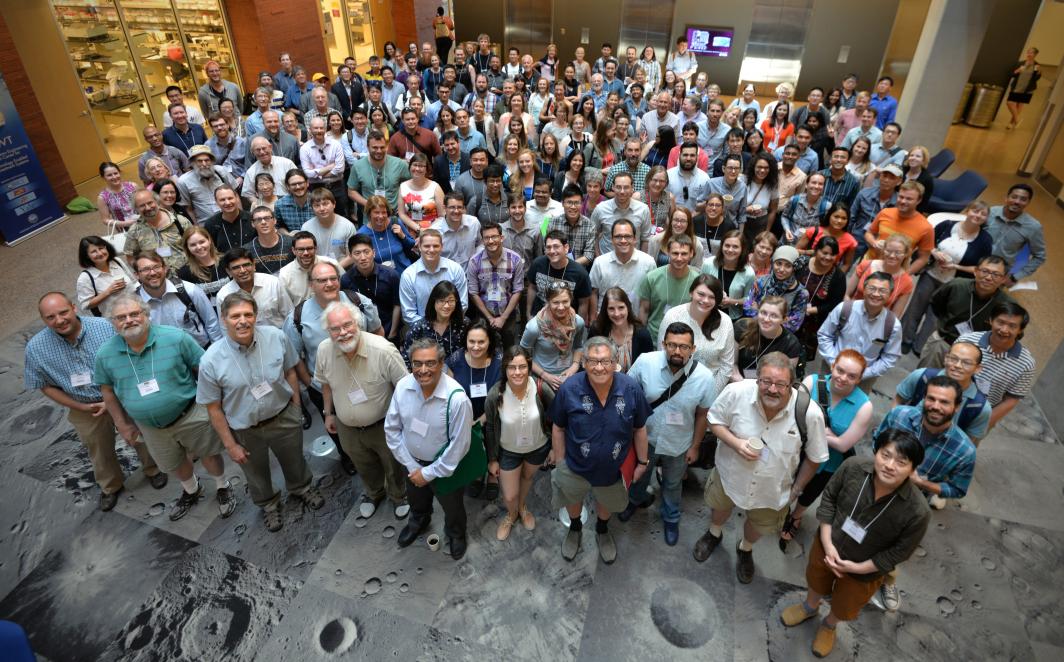ASU hosts international conference on biofuels, biotechnology

Cyanobacteriologists gather at ASU to stay abreast of the latest research in the field at the 12th Workshop on Cyanobacteria. Photo courtesy of Sandy Leander.
As scientists explore the potential applications of biotechnology, some are focusing on cyanobacteria — an easy-to-grow bacterium that needs only sunlight and carbon dioxide to survive.
To help graduate students and faculty members stay abreast of the latest research in the field, Arizona State University hosted an international conference for hundreds of cyanobacteriologists from around the world.
The 12th Workshop on Cyanobacteria, held last weekend at ASU’s Tempe campus, benefits students and post-doctoral candidates in a number of ways. According to School of Life Sciences professor and organizing committee member Wim Vermaas, many of the research presentations featured throughout the four-day event are given by students so they can share their contributions to the field. Whether they are investigating ways to use cyanobacteria as a biofuel or for other feats of bioengineering, the opportunity to interact with others is key.
“There’s a ‘getting to know people in the field’ that is an important factor,” Vermaas said. “The other is to learn what’s going on in the field as a whole. They can get that by reading the literature, but seeing the people behind it and talking to them is a very different and useful experience.”
Ferran Garcia-Pichel, dean of natural sciences in the College of Liberal Arts and Sciences, added that the workshop presents unique opportunities for students to meet their peers.
“They’re great networking opportunities, because after spending three or four days with two or three hundred people, you end up meeting a lot of people. If you go to a large conference with thousands of people, you can feel like you haven’t met anyone and a little bit isolated. So, actually, these conferences are my favorite,” said Garcia-Pichel.
Hundreds of cyanobacteriologists from around the world gathered at a conference to give students an opportunity to present their research and connect with the community. Photo courtesy of Samantha Lloyd.
School of Life Sciences microbiology doctoral candidate Wesley Swenson said he agrees. Swenson attended the conference hoping to meet other cyanobacteriologists and gain new ideas for research. He accomplished both goals during the conference’s numerous poster sessions, where he had opportunities to learn about and discuss multiple research projects.
“I found it to be a wonderful experience,” Swenson said. “Sometimes when you spend so long in the lab, you don’t know what direction the field is going. It’s nice to actually see where people are taking their projects and where you fit in the ecology of all that.”
ASU funded the four-day conference along with the National Science Foundation, the U.S. Department of Energy-Office of Science, Algenol, the International Society of Photosynthesis Research and Reliance Industries Limited. The conference is held every three years at a different university in the United States.
More Science and technology

Will this antibiotic work? ASU scientists develop rapid bacterial tests
Bacteria multiply at an astonishing rate, sometimes doubling in number in under four minutes. Imagine a doctor faced with a…

ASU researcher part of team discovering ways to fight drug-resistant bacteria
A new study published in the Science Advances journal featuring Arizona State University researchers has found…

ASU student researchers get early, hands-on experience in engineering research
Using computer science to aid endangered species reintroduction, enhance software engineering education and improve semiconductor…
